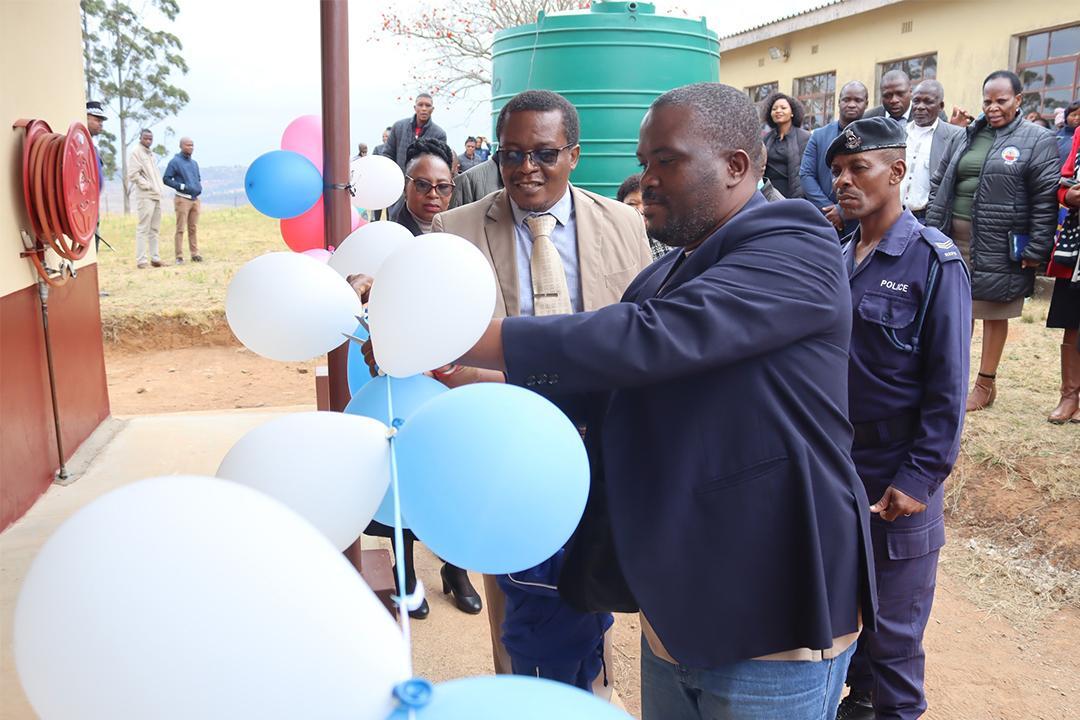Africa-Press – Eswatini. The Minister of Tinkhundla Administration and Development, Sikhumbuzo Dlamini, has officially handed over three newly completed educational facilities in the Shiselweni Region, valued at E2.7 million and funded through the Government’s Regional Development Fund (RDF).
For the teachers of Ngozi High School, the daily challenge of finding decent accommodation will soon be a thing of the past.
For pupils at Hluthi High School, overcrowded classrooms are about to be replaced with bright, airy learning spaces. And for young learners at St. Juliana Primary School, agriculture will no longer be just something they hear about — it will be something they can see, touch, and experiment with.
The three facilities unveiled include:
A state-of-the-art agricultural laboratory at St. Juliana Primary School.
A semi-detached staff house at Ngozi High School.
A block of three new classrooms at Hluthi High School.
For teachers at Ngozi High, the new staff house is more than just bricks and mortar — it’s peace of mind. Minister Dlamini stressed that comfortable housing is key to retaining educators in rural areas.
“When teachers have a decent place to live, they can focus more on teaching and less on daily struggles. This improves their morale and directly benefits learners,” he said.
At Hluthi High School, the new classrooms will ease long-standing overcrowding issues. Some learners previously shared desks or squeezed into small rooms. Now, they will have space to learn, breathe, and thrive.
“Education is the bedrock of our nation’s progress,” the Minister said. “These modern facilities will help unlock students’ full potential and contribute to our fight against poverty.”
But perhaps the most forward-looking project is the agriculture lab at St. Juliana Primary. Here, pupils will get hands-on experience in farming techniques, soil analysis, and sustainable crop production — skills that are not only educational but essential for Eswatini’s food security.
“Agriculture remains a cornerstone of our economy,” said Dlamini. “By starting agricultural education early, we’re preparing the next generation of farmers, innovators, and agronomists.”
Community members also played a key role, donating manual labour and local materials to help bring the projects to life — proof, the Minister said, that development works best when government and communities partner.
For the students, teachers, and parents of Shiselweni, these projects are more than infrastructure — they are hope for a brighter, better-equipped future.
For More News And Analysis About Eswatini Follow Africa-Press







